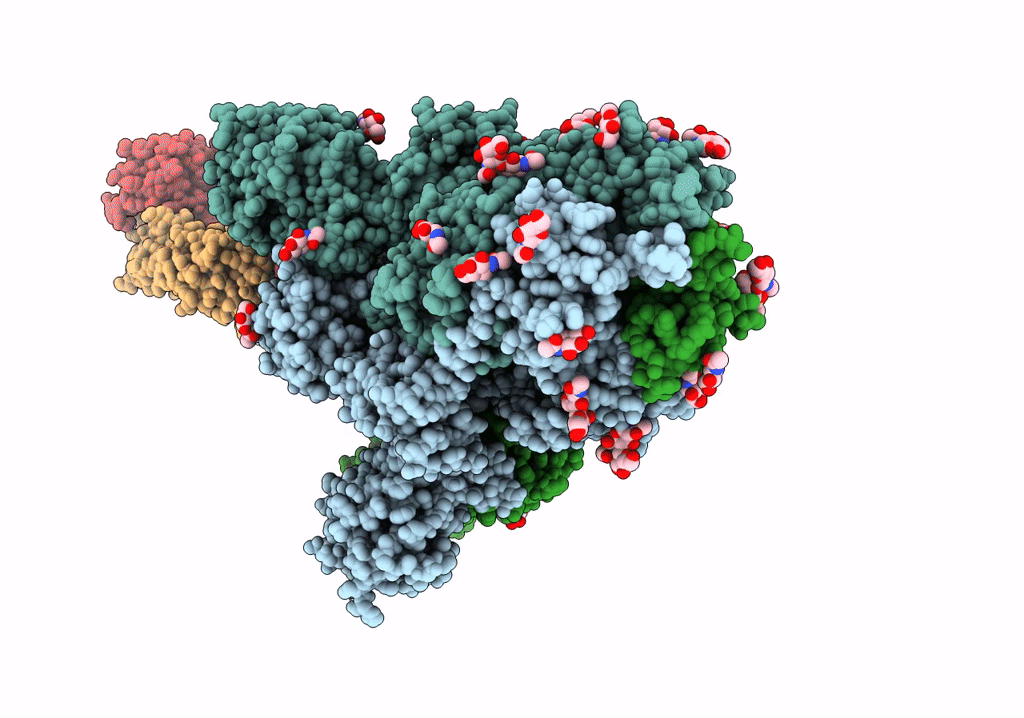
Deposition Date
2021-08-30
Release Date
2021-10-06
Last Version Date
2025-05-28
Entry Detail
PDB ID:
7S0C
Keywords:
Title:
Structure of the SARS-CoV-2 S 6P trimer in complex with neutralizing antibody N-612-017
Biological Source:
Source Organism(s):
Severe acute respiratory syndrome coronavirus 2 (Taxon ID: 2697049)
Homo sapiens (Taxon ID: 9606)
Homo sapiens (Taxon ID: 9606)
Expression System(s):
Method Details:
Experimental Method:
Resolution:
3.25 Å
Aggregation State:
PARTICLE
Reconstruction Method:
SINGLE PARTICLE


